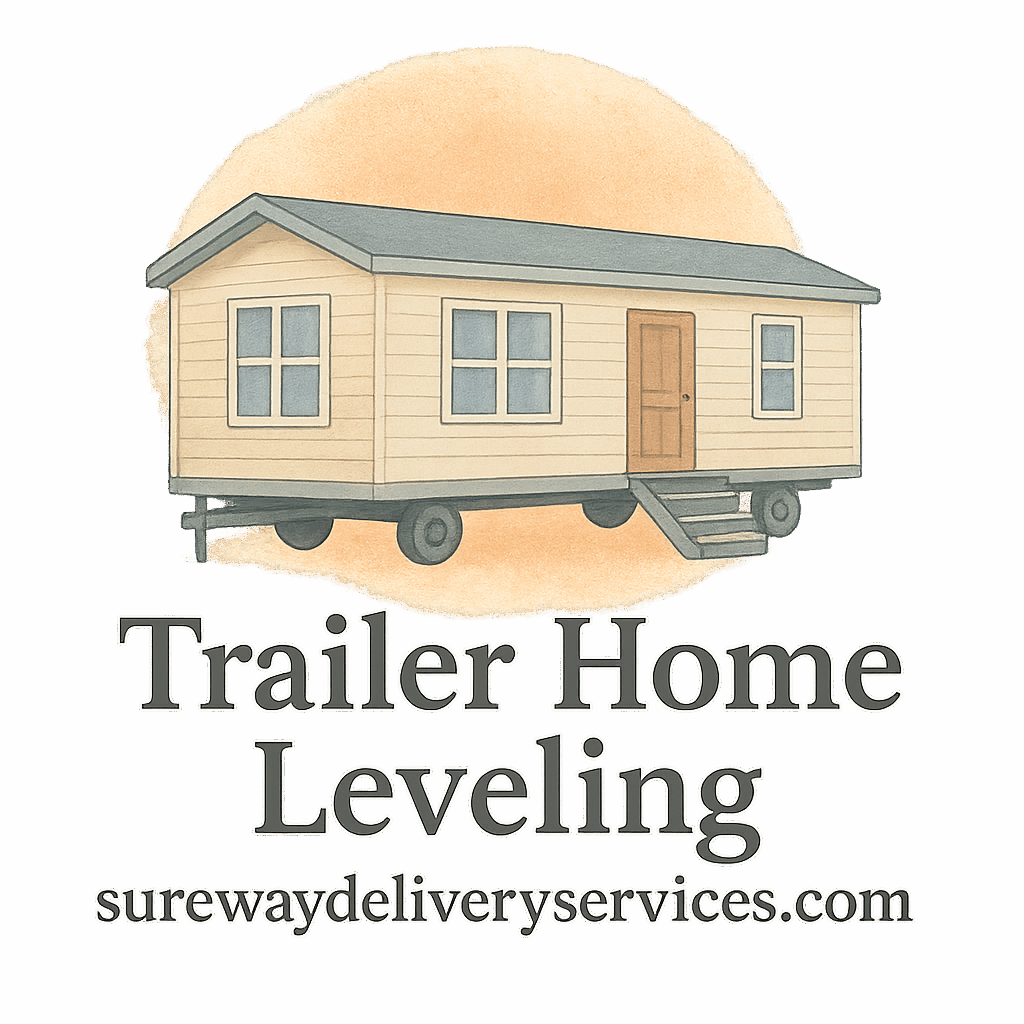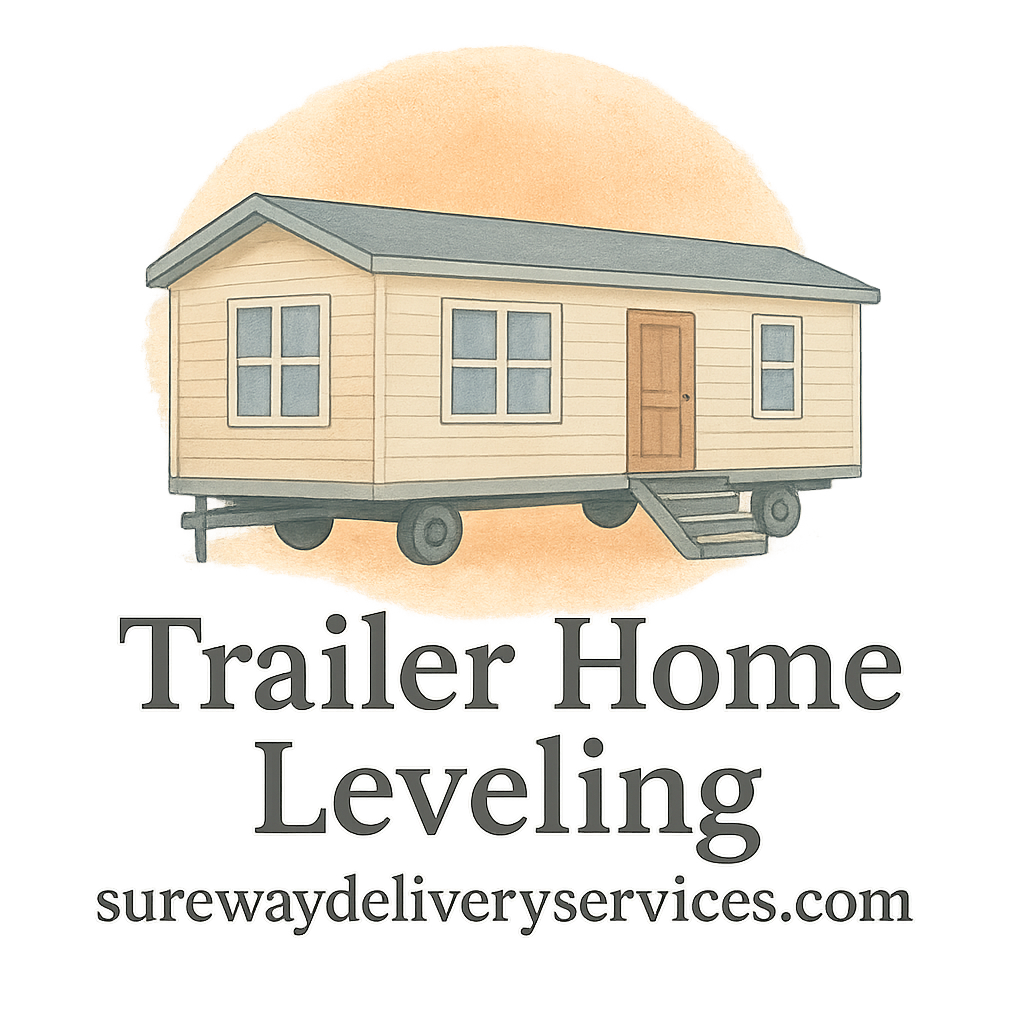Ever noticed your floors sloping a little, doors not closing quite right, or your cabinets separating from the walls? Yep, you’re not imagining things — your home might need leveling. Whether you’re living in a classic trailer home or a modern modular one, home leveling is crucial for comfort, safety, and peace of mind.
Let’s dive into the top eight questions homeowners have about home leveling and break them down in a simple, conversational way. By the end of this post, you’ll know exactly what to do, what to watch out for, and how to avoid getting ripped off in the process.
What Is Home Leveling and Why Does It Matter?
Understanding Uneven Homes
Home leveling is the process of bringing your home’s foundation back to its original, even state. Think of it like resetting your home’s balance. Over time, mobile homes, especially trailer homes, tend to shift due to weather, soil erosion, or simple wear and tear. It happens to the best of them!
Check out our Basics and Introduction to Home Leveling to get a deeper understanding.
Long-Term Consequences of Ignoring Issues
An unlevel home isn’t just annoying; it can lead to costly structural damage, plumbing issues, and even safety hazards. You might not notice it right away, but slowly, it eats away at your home’s integrity — and your wallet.
How Do I Know If My Home Needs Leveling?
Signs of an Unlevel Home
There are a bunch of red flags that could mean your trailer home is off-balance. Some of the most common signs include:
- Cracks in the walls or ceilings
- Doors and windows that stick or won’t latch
- Sagging or uneven floors
- Gaps between walls and floors or ceilings
For a comprehensive checklist, visit our Signs and Symptoms Guide.
Regular Inspection Is Key
You don’t have to wait for visible damage. It’s wise to do annual inspections or schedule them with a pro. Prevention always beats repair!
What Causes a Home to Become Unlevel?
Common Trailer Home Issues
Trailer homes are particularly susceptible to becoming unlevel. Unlike traditional homes, they’re built on a frame, which means even small shifts in the foundation can throw everything off.
Explore more trailer-specific issues on our blog.
Environmental & Foundation Factors
Here’s where Mother Nature steps in. Common culprits include:
- Shifting soil or erosion
- Excessive moisture or drought
- Freeze-thaw cycles
- Improper installation
These issues often fall under the category of trailer home maintenance, so staying on top of it is key.
How Is the Home Leveling Process Done?
Techniques and Tools Used
Modern home leveling combines time-tested tools with smart techniques. Typically, it involves using jacks to lift the home and inserting shims or adjusting piers to restore level.
Take a look at our guide on Techniques and Methods for a detailed walk-through.
Manual Jacks vs. Hydraulic Systems
Some prefer old-school manual jacks — affordable but labor-intensive. Others go for hydraulic leveling systems for precision and ease. Our tools tag breaks it down.
How Much Does Home Leveling Cost?
Budgeting Smartly for Leveling Projects
You’re probably wondering, “How much is this going to set me back?” The answer: it depends.
Factors like home size, severity of unleveling, and method used affect cost. On average, expect to pay between $500 and $2,500.
Check out our Cost and Budgeting page to get a more accurate estimate.
Tips to Avoid Overcharges
It’s easy to get overcharged if you don’t know what to look for. Always request multiple quotes and watch out for hidden fees. Read our cost tips and overcharge warnings.

Should I Hire a Professional or Do It Myself?
DIY Risks and Realities
Sure, you can do it yourself — but should you? Unless you’ve got experience and the right tools, it’s risky business. A botched job can lead to even more expensive repairs.
Our page on service hiring outlines what to consider if you’re thinking of going pro.
Hiring the Right Service Package
Look for companies that offer service packages with warranties, post-inspection, and clear pricing. Don’t just go with the cheapest option — you often get what you pay for.
How Often Should Home Leveling Be Checked?
Annual Checklists and Maintenance Tips
Experts recommend annual or bi-annual leveling checks, especially for mobile and trailer homes. Don’t skip it — even small shifts can snowball into major problems.
Use our annual checklist to stay ahead of issues before they hit.
Inspection Recommendations
Need a deeper dive? Our team compiled a full list of inspection tips to help you perform your own assessments or communicate better with your hired contractor.
What Should I Look for in a Home Leveling Service?
Reading Customer Reviews
First rule of thumb: read the reviews! Real customer feedback is gold. Check for red flags like inconsistent pricing or lack of professionalism. Our customer reviews section is a great starting point.
Asking the Right Questions
When interviewing a potential service provider, ask about:
- Tools they use
- Timeline
- Warranties
- References
Visit our recommendations page for more great questions to ask.
Conclusion
Home leveling may not be the most glamorous topic, but it’s one of the most critical for any trailer homeowner. From spotting the signs to budgeting smartly and hiring the right team, you now have the tools to tackle this head-on.
Don’t wait until it’s too late. An unlevel home is more than just an inconvenience — it’s a silent threat. Visit TrailerHomeLeveling.com to explore more tips, stories, and tools to keep your home safe and sound.
FAQs
1. How long does home leveling take?
Typically, it takes 1–2 days depending on your home’s size and how unlevel it is.
2. Can I level my home without professional help?
You can, but it’s risky without proper tools or experience. Professionals are usually the safer bet.
3. How can I tell if my trailer home is sinking?
Check for sagging floors, cracks, and doors not shutting properly — these are classic signs.
4. Is home leveling covered by insurance?
Usually not, unless it was caused by a covered event. Always check with your provider.
5. How often should I check my home’s level?
Annually, or immediately after severe weather events.
6. What’s the biggest mistake homeowners make with leveling?
Waiting too long. Early signs are easy to ignore — don’t make that mistake!
7. Where can I find success stories of leveling projects?
Head over to our success stories section to read real-life examples.


